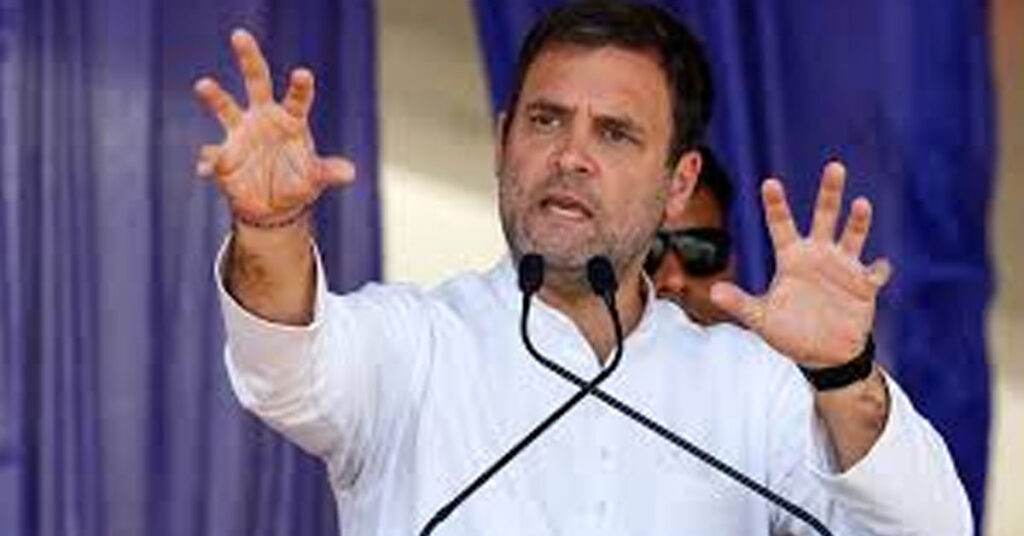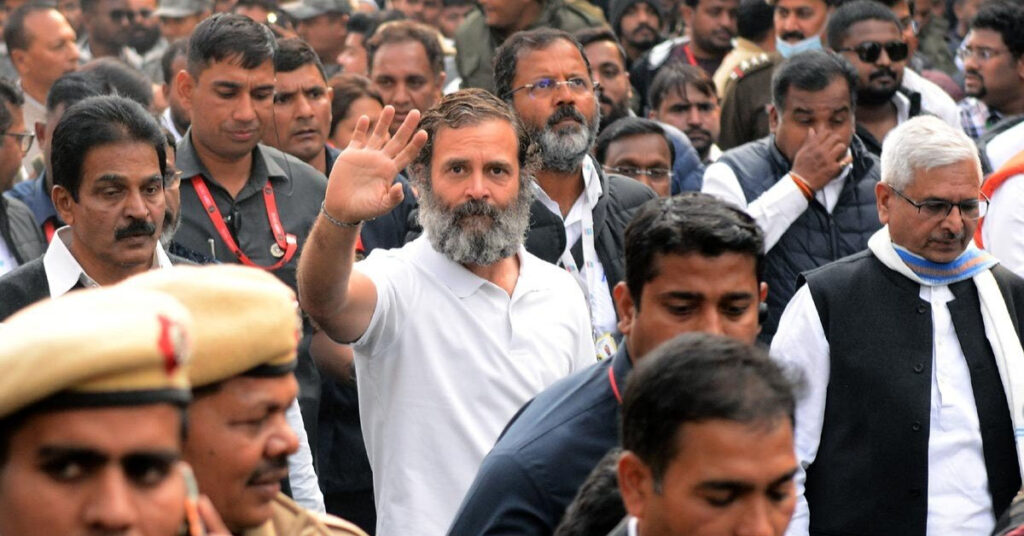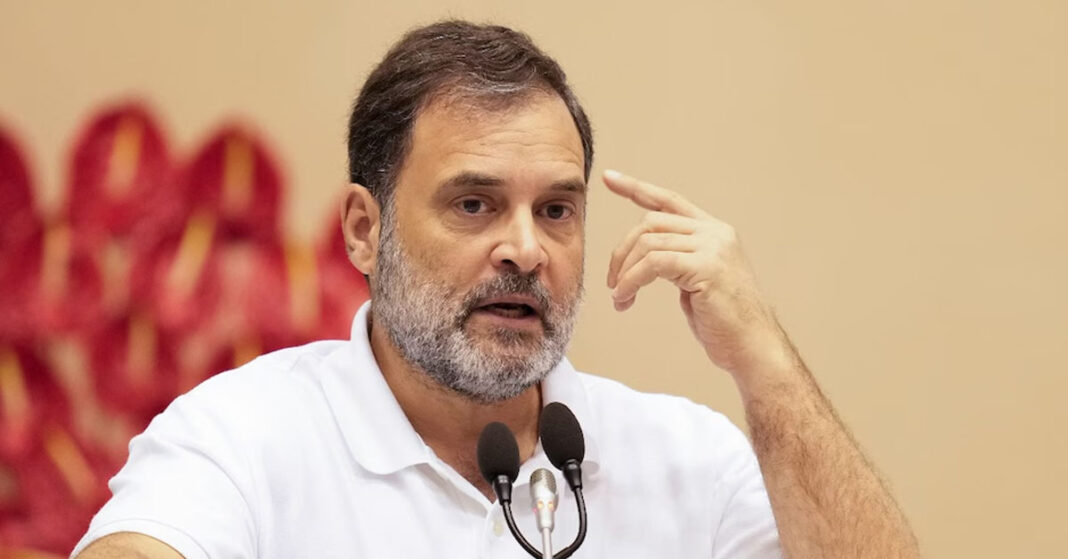Table of Contents
Supreme Court Slams Rahul Gandhi Over China Land Grabbing Remarks
In a sharp rebuke, the Supreme Court of India questioned Congress leader Rahul Gandhi on Monday regarding his repeated claims that China has occupied 2,000 square kilometers of Indian territory. The court asked Gandhi to provide credible evidence for such a statement, adding that “a true Indian would not speak like this without verified facts.”
“What Is Your Source?” Supreme Court Asks

The top court’s observations came during a hearing on a defamation case filed against Gandhi for allegedly making derogatory remarks about the Indian Army. A bench of justices asked, “How do you know China has occupied Indian land? What reliable information do you have?” The court emphasized that such sensitive matters, especially those involving national security and border tensions, should not be reduced to political soundbites or social media rhetoric.
The bench further advised Gandhi, “Why not raise such questions in Parliament, where debates carry accountability? You are the Leader of the Opposition—speak where it matters, not just online.”
SC Halts Legal Proceedings in Army Remark Case
Despite its strong words, the Supreme Court granted relief to Rahul Gandhi by putting a temporary stay on proceedings in a defamation case filed in Lucknow. The case was initiated by Uday Shankar Srivastava, a retired director of the Border Roads Organisation (BRO), who accused Gandhi of maligning the Indian Army through his public statements during the ‘Bharat Jodo Yatra’ in December 2022.
The apex court also issued notices to both the complainant and the Uttar Pradesh government, seeking their responses before proceeding further.
Political Backlash Over Rahul Gandhi’s Comments on China and the Army
The controversy began when Rahul Gandhi, during his Bharat Jodo Yatra on December 16, 2022, stated: “People ask me why I’m walking across the country, but China has occupied 2,000 sq km of Indian land. Twenty of our soldiers died, and our troops are being beaten up in Arunachal Pradesh.”

This statement triggered outrage among BJP leaders and former military officials. Srivastava filed a criminal defamation case, claiming Gandhi’s remarks were not only misleading but also detrimental to the morale of the armed forces.
BJP Hits Back: Questions Rahul Gandhi’s Credibility and Intentions
Reacting to the Supreme Court’s remarks, the Bharatiya Janata Party launched a scathing attack on Rahul Gandhi and the Congress Party. BJP spokesperson Gaurav Bhatia said, “This is not the first time Rahul Gandhi has demonstrated an anti-national mindset. The Supreme Court’s observation raises serious questions about his credibility and maturity as a political leader.”
Bhatia accused Gandhi of consistently undermining India’s image on global platforms and using misinformation for political gains.
Rahul Gandhi’s April 2025 Statement: “China Occupied 4,000 Sq Km of Indian Land”
This is not an isolated incident. On April 3, 2025, Rahul Gandhi made a similar accusation in the Lok Sabha during Zero Hour. He criticized the Indian government’s participation in the 75th-anniversary celebration of India-China diplomatic ties. “China is sitting on 4,000 square kilometers of our land, yet our Foreign Secretary is seen cutting cake with the Chinese Ambassador,” he said.
Gandhi added that while he is not against diplomatic relations, India must first regain its territory. “I heard that the President and Prime Minister have written letters to the Chinese Ambassador, but we learn this from foreign media—not our own government,” he remarked.
Background: Galwan Clash and India-China Border Tensions
The India-China border dispute escalated dramatically in 2020 during a violent confrontation in the Galwan Valley of eastern Ladakh. On June 15, 2020, Chinese troops ambushed Indian soldiers, resulting in the death of 20 Indian personnel. India retaliated strongly, with unofficial estimates claiming that at least 40 Chinese soldiers were killed.
The Chinese army had reportedly amassed troops under the guise of military drills, leading to multiple incursions in Ladakh. India responded by deploying an equal number of soldiers in the region, resulting in high-altitude standoffs and increased military tension along the Line of Actual Control (LAC).
Legal vs. Political: What Lies Ahead for Rahul Gandhi
While the Supreme Court has stayed legal proceedings for now, the broader political ramifications of its comments are likely to linger. As Leader of the Opposition, Rahul Gandhi remains under scrutiny for his handling of sensitive national issues and for making public statements without corroborating them with verified intelligence.
Whether Gandhi will use the floor of Parliament to further explain his claims remains to be seen, but the top court’s advice has made it clear: in matters of national security, leaders must speak with responsibility, not rhetoric.
Conclusion: Supreme Court’s Message—Responsibility Comes with Position
The Supreme Court’s intervention in this case serves as a powerful reminder that political leaders, especially those in senior positions, must exercise caution and integrity when addressing matters of national interest. As India navigates complex geopolitical challenges, including its tense standoff with China, the role of public discourse must be rooted in facts—not fueled by speculation or sensationalism.










